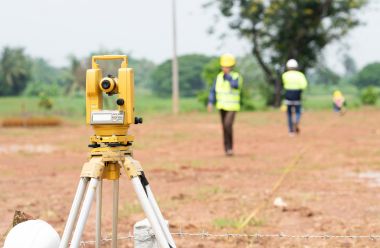With a deep understanding of your business alongside clear and honest communication, we help clients face challenges fearlessly.
Contact us today to learn more about our services and how we can help drive solutions.
Is COVID-19 Affecting Your Commercial Lease?
March 26, 2020
COVID-19: The spread of COVID-19 is impacting retailers around the world. If you are a retail landlord or tenant experiencing the disruptive effect of this pandemic in Harris County, now is the time to review your lease, together with any other material agreements, to assess the rights and obligations of both parties.
RETAIL CLOSURES IN TEXAS: Many retailers have been directly affected by the supply chain disruption caused by the COVID-19 outbreak. If that was not enough, Harris County, along with several other of the most-populous counties in Texas, has issued an ORDER closing non-essential businesses and instructing residents to stay at home resulting in the already diminished traffic in public places coming to a halt. Retailers have reduced their hours and/or temporarily closed their locations, at the risk of reduced sales, or worse. These situations may result in potential defaults under commercial leases related to, among other things, (a) continuous operations provisions that require tenants to keep their doors option and their lights on, and (b) the payment of rent.
CONTINUOUS OPERATIONS: Many leases include “force majeure” clauses (also known as “acts of God” clauses) which excuse tenants from meeting certain lease obligations in a timely manner. Landlords and tenants should review their leases, however, to determine whether the force majeure clause applies to a pandemic or acts of the government (such as the above-described order). If it does, then tenants may have a legal basis for nonperformance of lease obligations, such as provisions requiring continuous operations. If not, then tenants may run the risk of being in default under their lease if they cease operations, even temporarily due to governmental order. Tenants should contact their landlords as soon as possible to proactively start the conversation surrounding these realities.
PAYMENT OF RENT: Even if the lease has a force majeure clause and the COVID-19 crisis constitutes a force majeure event under the clause, the clause may not excuse the nonperformance of all lease obligations. Force majeure clauses in many commercial leases carve out monetary obligations and only excuse nonperformance related to non-monetary obligations. Retail tenants who are struggling to maintain profitability may request deferrals or reductions, but landlords do not have a legal duty to provide rent relief absent an express statement in the lease. Landlords do have an obligation to keep certain services in place so that buildings remain secure and operational. Landlords should also continue to provide access to premises for tenants, because many businesses may be “essential businesses” which are permitted to operate in their premises in compliance with governmental orders. When considering rent relief requests from tenants, landlords will have to balance their obligations to investors and lenders against the need to maintain a functioning investment when economic constraints are lifted. At a minimum, tenants should expect landlords to require additional months added to lease terms or increased rental rates in later months as consideration for deferring or abating rent in the near-term. Regardless of the agreement reached by landlords and tenants, both parties should contact their insurance brokers to determine whether claims can be made under business interruption insurance policies.
EQUITABLE ARGUMENTS: Where lease documents do not include force majeure clauses, or are not specific as to the remedies available as a result of the forced closures, there may be equitable arguments for nonperformance, such as frustration of purpose and impossibility. Landlords and tenants alike are advised to seek legal counsel to understand more.
THE ECONOMIC IMPACT: The economic uncertainty created by the COVID-19 pandemic will likely have an adverse effect on real estate investments. The decrease in transactional activity and the uncertainty surrounding the overall impact of the pandemic will influence the response from both landlords and tenants. Both parties will be forced to absorb some losses. Review your lease carefully and consult with your legal counsel to protect your business.



